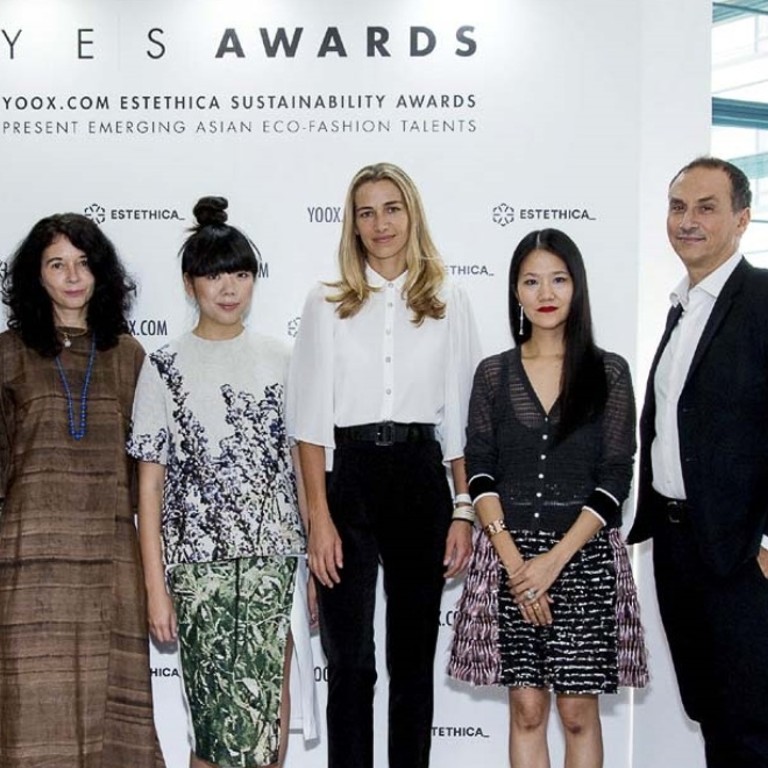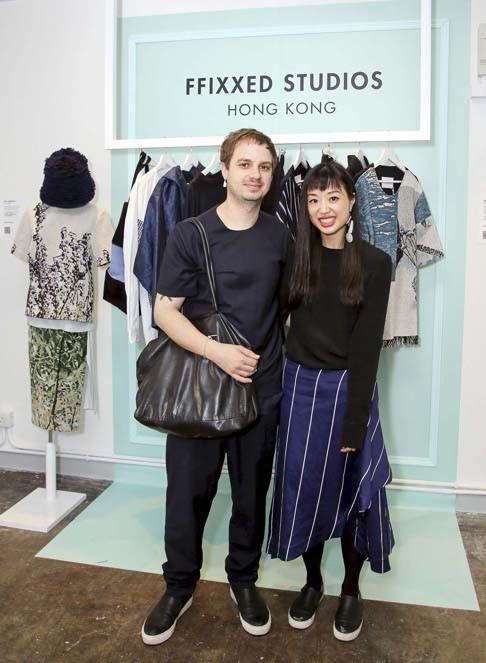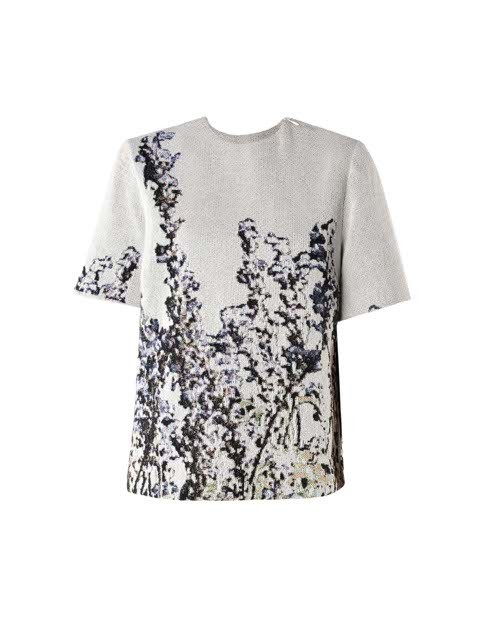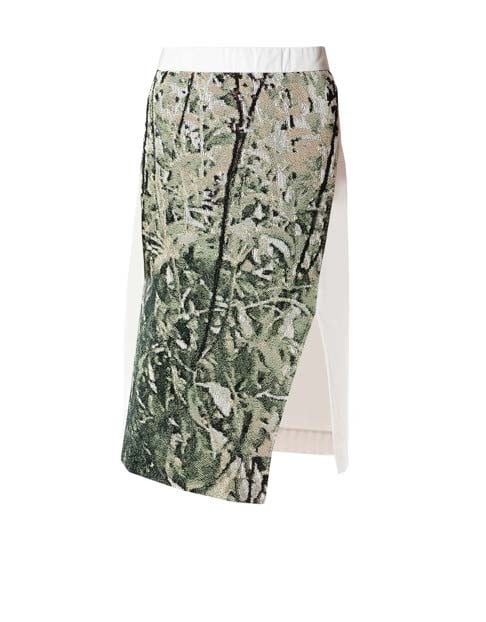
Hong Kong’s ffiXXed Studios wins Yoox.com’s Asian sustainable fashion award
E-tailing giant partners with ethical fashion champion Esthetica to reward eco-conscious industry practices; winners’ control of production cited as key factor
A panel of industry heavyweights was enlisted to assess the six designers shortlisted for awards, among them the president of Yoox.com, Luca Martines, style blogger Susie Bubble and Esthetica founder Orsola de Castro.

Shortlisted designers Re;Code from Korea, Ken Samudio from the Philippines, Renli Su from China, Suzuki Takayuki from Japan and Thu Thu by Thuy Duong Nguyen, have meanwhile
been invited to showcase their autumn-winter 2015-16 collections in a Hong Kong pop-up store at PMQ in Aberdeen Street, as well as on Yoox.com.
Started by Kain Picken and Fiona Lau in 2010 as a collaborative art project in Berlin, ffixxed Studios moved into fashion before relocating to Hong Kong, with production housed in Shenzhen. The brand takes inspiration from modern life, offering within the collection a range of luxuriant wool-silk-cashmere trousers, tailored poplin shirts and urban-inspired French terry sweatshirts.
“This is a really valuable award and we were so happy to have been part of it,” ffixxed Studios said. Initiatives such as the awards that encourage people in fashion to consider the social, environmental and economic impacts of what they are producing and consuming were vital, Picken and Lau said.

Being autonomous is another essential aspect of the brand’s values, the pair said. Picken said controlling production meanstthey controlled waste management, economy of cutting and recycling.
“We often seek out remnant fabrics, and for fabric that we do produce, such as the digital weave we made for Yoox.com, we’re able to adapt the measurements and pattern cutting so that it involves an absolute minimum amount of wastage. We also focus on natural fibres such as wool,” he said.
It seems the brand has also fostered a small community, taking up space in a building in Wutong Village, Shenzhen, where the designers and all the label’s staff work and live. The aim is to make everyone involved feel valued for what they contribute, with a strong community feel and more of a family environment in the studio. Of course there’s occasional conflict, they admit, but they say they don’t run the studio like a traditional factory.

“ffiXXed Studios won because of their very wearable, stylish items, which made good use of eco material. I would absolutely wear the collection; it’s environmentally friendly, has a good source of material and is stylish and fun, ” said Lam.
Susanna Lau was already familiar with the brand before the competition, and had visited the Shenzhen studio. “They’re not necessarily a label that declares themselves a sustainable fashion label, but by virtue of the way they work, producing everything themselves and controlling the whole process, they have solved a main problem that gets levied within the fashion industry, that the chain is out of control.”
Many of the judges agreed that efforts in sustainable fashion must be introduced into the mainstream as soon as possible. “There’s a younger generation of designers that are being educated with sustainability in mind and they will be going into design houses - both the high street and high fashion - and pushing for changes,” said Lau. “The fashion industry is already examining itself in lieu of the departure of Raf Simons from Dior and Alber Elbaz from Lanvin and wondering whether it has become “too much” in terms of the abundance of collections, noise and media chatter. This is where slow fashion and this idea of producing in a more sustainable manner can come into action.”
Fiona Lau said ffiXXed Studios customers were switched on to sustainability. “We find that our customers tend to appreciate fashion as part of a cultural dialogue, and they’re usually in tune with other creative fields outside of fashion. They are more and more concerned with issues around sustainability and ethical practices in fashion; not necessarily fashion devotees, but people who are well informed on the different aspects of the fashion world. But ultimately the ffiXXed Studios customer is looking for something unique, dressing first and foremost for themselves.”
